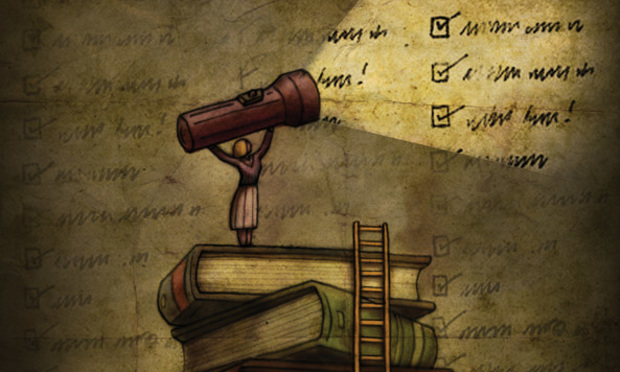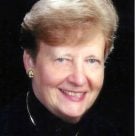
Ellen Hunt remembers being an in-house counsel at a health care company in Illinois about 15 years ago when her organization pleaded guilty to fraud and was required to create the new position of compliance officer.
"So it was, 'Hey, Ellen, will you do it?'" she recalls, then laughs. "I suspect that's a pretty typical path for compliance officers."
Today Hunt is chief ethics and compliance officer, and senior vice president for audit, at AARP in Washington, D.C., where she has worked for nine years. And she is one of a growing number of women who, either by choice or by request, are carving out successful careers in the compliance field.
In 2019 the International Women in Compliance group named Hunt compliance officer of the year in not-for-profit organizations. Ethisphere also listed AARP as one of the world's most ethical companies last year.
Related: HR compliance functions set to modernize
In some ways, Hunt's path mirrors that of hundreds of other women in compliance—U.S. Labor Department statistics over the past 20 years show that compliance is one of the fastest-growing professions for women.
Legal recruiter Mike Evers puts it this way: "Women are advancing in compliance like wildfire." Of the people he has placed in compliance positions in the past two years, Evers says all have been women lawyers. He says he also watches placements made by his competitors, and "there are some men, but by and large the vast amount of compliance professionals seems to be women."
So do companies prefer women compliance officers?
"I don't know if preference is the right word," he says, "but it's simply a fact that the supply of qualified compliance professionals in corporate America are predominantly women."
Appeal of the Job
Hunt says she has noticed the increasing number of women, especially at compliance conferences. She traces the trend back to 1990, when the U.S. Sentencing Guidelines added a section giving credit to a corporate defendant for an effective ethics and compliance program. "Not to sound stereotypical," Hunt says, "but compliance plays to a woman's strength—establishing a culture where people are comfortable coming forward. … I think women have a tendency to be better listeners and more approachable, better at consensus building. I don't want to imply that men can't do that, but in general some requirements of the job appeal more to women."
 Ellen Hunt, Senior Vice President, Audit, Ethics & Compliance Officer at the Office of General Counsel of the? AARP.
Ellen Hunt, Senior Vice President, Audit, Ethics & Compliance Officer at the Office of General Counsel of the? AARP.Evers thinks the growth is due more to supply and demand. "There is an appetite among law departments in general to hire women and minorities, and this is low-hanging fruit," he says. Some experts say the current business environment also plays a role. The increasingly complicated, global regulatory landscape demands increased compliance. Also the cost of noncompliance—fines, penalties, business disruption and settlements—are estimated to be more than 2.5 times more expensive than the costs of meeting compliance requirements.
With more women in general graduating with degrees in law, business and accounting, it makes sense that a growing field like compliance will draw them.
At the risk of sounding like stereotyping, Evers says he feels that compliance has become to law what the nursing profession is to medicine.
That is not to say women compliance officers are content to play a support role to the corporate legal department. In fact, it may be just the opposite.
"Compliance has provided an avenue for women to climb the corporate ladder," Hunt says. "They can become a chief compliance officer when it might have been harder to become the general counsel. It's provided a new path for them."
Taking the Path
Pat Harned, CEO of the nonprofit Ethics & Compliance Initiative in Vienna, Virginia, agrees that the increase in the number of women in the profession is noticeable, especially over the past 10 years.
Among other things, her organization brings together compliance professionals and academics from around the world to share techniques, research and practices. Some conferences, Harned says, run as high as 70% female.
"But it's still the case that if you have a meeting of just chief compliance officers, there are probably more men than women," she adds. Harned also points out that she is the only female CEO among the leading providers in the U.S. compliance industry.
She explains that many companies "look for a chief compliance officer who has prosecutorial or law enforcement experience, and there are historically more men there. But I expect more women in those roles in the future."
So does Yvette Lingom, an associate director who organizes legal and compliance events for C5 Communications in London, including the Women in Compliance group.
Lingom says about six years ago her organization compiled a database on who was coming to its compliance conferences, and to her surprise discovered that 70% to 75% of attendees were women.
That's when they came up with an idea to celebrate women in compliance with an award at the next conference. The reaction was so strong that many of the women said they wanted their own conference where they could network with each other.
"So we studied the data again," Lingom says, "and found less than 10% of the women were in management roles, like a chief compliance officer. So we decided to build a conference for women on professional development, and on the leadership and other skills needed to move beyond just being good at compliance."
At the 2019 Women in Compliance awards conference in London, Lingom says the women discussed such topics as how to become more than a support function, to participate in board of director meetings, and to find their leadership voices.
The conference sold out.
Sharing the Knowledge
Mary Shirley and Lisa Fine are compliance professionals who also have discovered women's growing desire for more knowledge in the profession. Shirley is senior director of ethics and compliance at Fresenius Medical Care in Waltham, Massachusetts. Fine is the director of compliance for the Americas for Pearson, an education and learning services company based in London.
About a year ago, they created a podcast called "Great Women in Compliance" to spotlight women sharing their knowledge and experience.
 Pat Harned, CEO of the Ethics & Compliance Initiative (Photo: Courtesy Photo)
Pat Harned, CEO of the Ethics & Compliance Initiative (Photo: Courtesy Photo)"Our goal was to speak with remarkable women about why they chose compliance, what challenges they have faced, how they mentored each other," Fine says. The audience is a small niche group—women in compliance who speak English—so they weren't sure what to expect in response.
The podcast has grown to 1,500 listeners per episode, they say, adding they were "bowled over" by the size and the power of the response. Listeners write the pair about the impact of the advice on their lives. "It makes them feel less alone," Shirley says.
Both women say they would recommend a career in compliance to others, especially to women. "It has been an incredible career for me, taking me to four different continents," Shirley says. "I would recommend it to other women wholeheartedly."
She says it does take certain skill to be strong at the job, but "it's a different skill than being a successful lawyer. It's for people strong on social skills, on the human relations side of things, and less on the black and white of the law."
"Compliance is a relatively new discipline," Shirley adds. "So you spend a lot more of your time working on interpersonal skills, aiming to get commitment and buy-in… in your day-to-day job because unlike legal, compliance oftentimes still has to explain their raison d'etre. For legal, most folks now accept that the legal department should be taken seriously and are less likely to question legal advice."
Fine says for her, compliance is an opportunity to "help people make good decisions and do the right things. You get a chance to learn about so many different things."
Sometimes, she says, the ethics and compliance officer can be a lonely job. "The tradeoff is that you have a community of peers, of colleagues outside your company, who are willing to share their best practices with you."
Fine adds, "I haven't seen that kind of sharing in any other profession."
In one of their podcasts, the pair interviewed Lingom, the compliance event organizer. "How do you define great women in compliance?" they asked her.
Lingom replied, "A great woman in compliance should be a subject matter expert in her specialty. But at some point, knowledge no longer becomes a differentiator; it becomes a given, so she needs to be influential [and] to have a great personality: kind, tough, but fair. And lastly, she should be capable of demonstrating solidarity: with women in compliance, with women in general, and with the next generation."
Read more:
© 2025 ALM Global, LLC, All Rights Reserved. Request academic re-use from www.copyright.com. All other uses, submit a request to [email protected]. For more information visit Asset & Logo Licensing.








